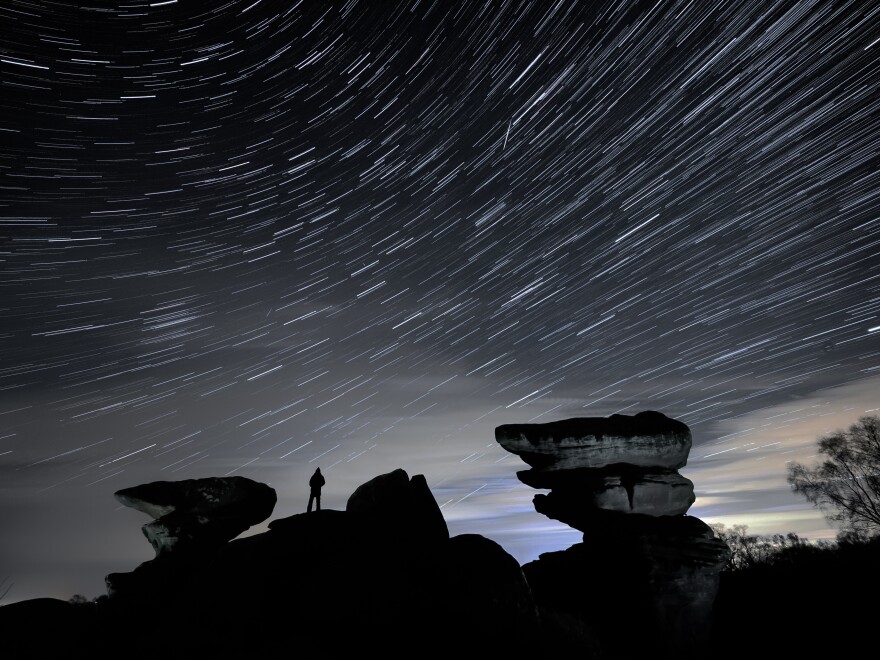One of the best and most reliable meteor showers of the year will peak this week.
The Geminids meteor shower, which streaks across the night sky every year in mid-December, will peak on Tuesday night and into Wednesday.
Bright, intense colors are often associated with the Geminids, according to the American Meteor Society. They're visible across the globe, no matter your time zone, and will last all night.
The Geminids first appeared in the mid-1800s, but were not as noteworthy at the time: Only 10 to 20 meteors were seen per hour, according to NASA. Now, during peak activity and perfect weather conditions, 100 to 150 meteors per hour are visible (though perfect conditions are rare).
"Rich in green-colored fireballs, the Geminids are the only shower I will brave cold December nights to see," Bill Cooke, the lead for NASA's Meteoroid Environment Office, said in a statement before last year's shower.
The shower gets its namesake from the constellation, Gemini. That constellation is the point in the sky where the Geminids appear to originate from.
Originating from the debris of an asteroid, the Geminids travel 78,000 miles per hour, over 40 times faster than a bullet, according to NASA. It's highly unlikely for the meteors to reach the ground, since most Geminids burn up about 45 to 55 miles above ground, the space agency added.
NASA says the shower is one of the best opportunities for young viewers to see meteors since it begins around 9 p.m. or 10 p.m.
For the best viewing, find an area away from city or street lights. You should lie on your back with your feet facing south, taking in as much of the night sky as possible. And, be patient — it could take about 30 minutes for your eyes to fully adjust.
The last opportunity to see the Geminids this year will be Dec. 17, NASA says.
Copyright 2022 NPR. To see more, visit https://www.npr.org.



